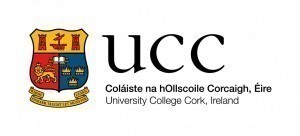22 April 2016
By Tom Collins
tom@TheCork.ie
As hit TV drama series Vikings returns for a gripping fourth season with Jonathan Rhys Meyers set to join its cast for the fifth, the World-Tree Project has been launched at University College Cork, aiming to create the largest online collection about the Vikings.
A “world-first attempt to crowdsource material on the Vikings from across the globe,” the project will enlist the public’s help to develop an interactive digital archive for the teaching and study of Norse and Viking cultures.
Crowdsourcing has been used successfully in recent years to create educational resources, from collective transcription for the Letters of 1916 project to huge citizen science projects, and this Irish Research Council-funded project based at UCC’s School of English invites the public to submit everything from a translation of Norse poetry to a film of a Viking re-enactment or an original artwork.
Dr Tom Birkett, the Principal Investigator on the World-Tree Project, commented that “the Vikings have never been so popular, thanks to glossy TV dramas, blockbuster exhibitions and recent high-profile finds, and the World-Tree Project aims to capitalise on this enthusiasm.”
“The time is certainly ripe for such a collection: interest in Ireland is at an all-time high in the wake of the Battle of Clontarf centenary, and there’s a need for a resource that fulfils an appetite for more information about the Vikings.”
According to researcher Dr Roderick Dale, “everyone knows that the Vikings travelled huge distances, colonising Greenland, exploring North America and leaving a legacy across Europe. What we’re hoping is that the public will help us to gather together this wealth of material by taking photos in their local area and submitting items to the project.”
The World-Tree Project is just as interested in modern interpretations of the Vikings as in original material. “If we hope to learn anything about how people perceive and use the Viking past, we need to understand how the Vikings are being used in tourism and popular culture. In this sense, a Viking brand or a souvenir is as interesting to us as the legacy they left in the form of literature, language and material culture,” Dr Dale added.
As the collection grows, it will be curated by researchers at UCC and developed into a series of exhibitions accessible to everyone. What excites the World-Tree Project researchers most is that this is an initiative that starts and ends with Vikings in the community, as a resource developed by the public for everyone to enjoy.
Follow the World-Tree Project and contribute items at: www.worldtreeproject.org.


